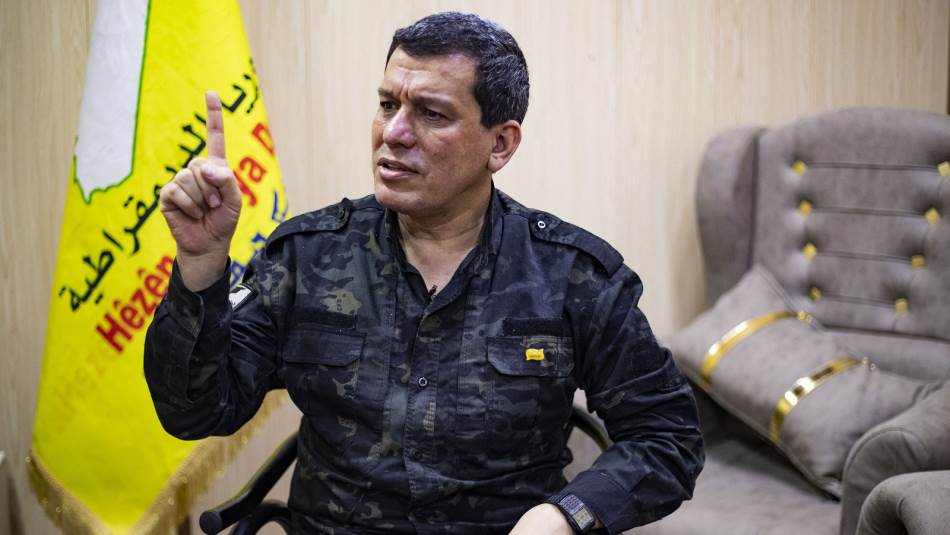The Commander-in-Chief of the Syrian Democratic Forces (SDF), Mazloum Abdi, has announced that his forces are open to transferring control of oil resources to the caretaker government in Damascus. This is contingent upon ensuring the fair distribution of the nation’s wealth among all Syrian provinces. Abdi also described ongoing consultations with Ahmad al-Sharaa, the leader of the new Syrian administration, as “positive,” adding that the integration of the SDF into the Syrian army and the surrender of its weapons would be possible in the context of a comprehensive ceasefire.
In an interview with Al-Sharq, Abdi emphasized that the demand for a decentralized administration in northeastern Syria aligns with the unity of the country and represents “the most appropriate option” for the Syrian context. He clarified that the proposed decentralization is “geographical, not based on ethnicity,” asserting that the Kurds are not seeking a separate parliament or government. Instead, the proposal focuses on linking Kurdish military and civilian institutions with the new Syrian administration in a way that preserves their unique characteristics.
Abdi also expressed willingness to relinquish control of oil resources to the central administration, provided that revenues are distributed equitably across all Syrian provinces. He dismissed comparisons between the Syrian Kurds’ demands and the federal model in Iraq’s Kurdistan Region, underscoring that the Kurds are not seeking federalism at this stage.
Abdi outlined his vision for the SDF’s future, highlighting the importance of a unified Syrian effort to draft a new constitution and achieve national compromise. He described ongoing discussions with Ahmad al-Sharaa as constructive, citing agreements on key principles such as territorial unity, security, and institutional cohesion. As part of these discussions, a military-administrative committee has been proposed to work out the specifics of SDF integration. Abdi confirmed that his forces are open to becoming part of the Ministry of Defense as a cohesive military bloc, operating under Syrian law and regulations. He clarified that the integration would not occur at the level of individual fighters but as an organized entity.
On the topic of integrating the SDF into the Syrian army and surrendering its weapons, Abdi stated that such a step would be contingent upon achieving a comprehensive ceasefire and establishing lasting security and stability. He noted that peace remains unlikely in the near future due to continued Turkish attacks.
Truce with Turkey
Abdi highlighted efforts to negotiate a truce with Ankara, accusing Turkey of opposing Kurdish autonomy near its borders. He emphasized that Turkey’s demands to combat ISIS without the SDF are unfeasible, pointing out the SDF’s role in managing 28 prisons holding ISIS detainees and the challenges of involving regional components in security matters.
Abdi urged U.S. President-elect Donald Trump to uphold the 2019 resolutions that halted Turkish aggression and called on Turkish President Recep Tayyip Erdogan to prioritize peace and stability. He also appealed to Ahmad al-Sharaa to maintain dialogue and stressed the importance of unity among Syrians to rebuild the nation and secure its future.
This development reflects a significant moment in Syria’s post-conflict landscape, with the SDF signalling flexibility on key issues while emphasizing fairness, dialogue, and national unity.
This article was translated and edited by The Syrian Observer. The Syrian Observer has not verified the content of this story. Responsibility for the information and views set out in this article lies entirely with the author.


